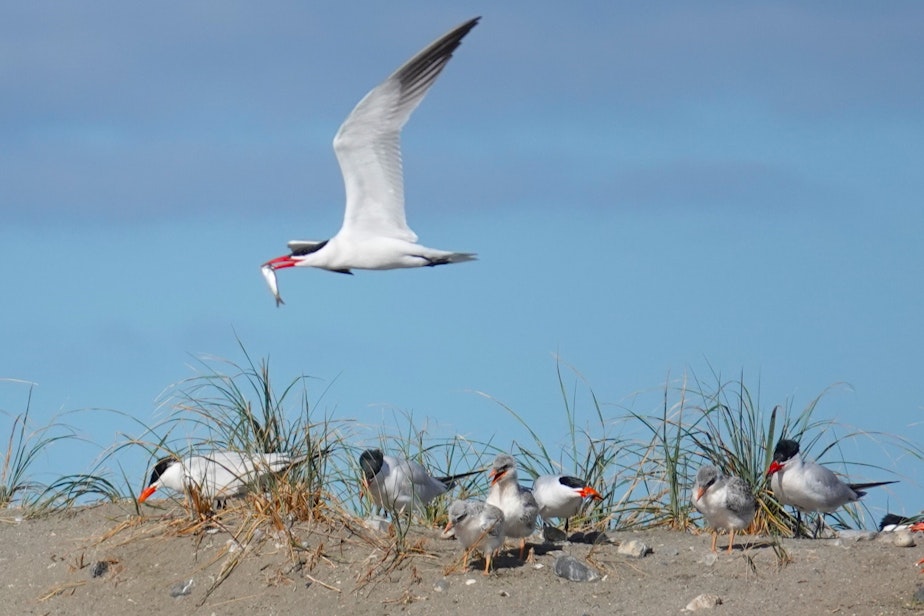Most of Western Washington's largest Caspian tern colony is dead. Can the seabirds rebound?

More than 1,500 adult Caspian terns made Rat Island, near Port Townsend, their home. Now 80% of them are dead.
The Caspian terns of Rat Island have had a difficult couple of years.
"They ended up here because they were basically hazed away from other places where they had conflicts with humans," said Steve Hampton, a retired resource economist who focused on seabird restoration for the California Department of Fish and Wildlife.
Hampton is now the conservation chair for the Admiralty Audubon Society in Port Townsend, and writes about conservation issues. He's been watching these birds since they first arrived on Rat Island last year.
Last year, he said, the main concern was humans — people were coming to the island during low tide and disturbing the birds. The terns would flee, leaving behind vulnerable eggs that were then eaten by seagulls or crows.
This year though, state officials have had to protect the humans and their pets from the birds, Hampton said. The Rat Island terns, the only known colony in Puget Sound, are experiencing the first known case of avian flu in a breeding colony in Washington state. Approximately 80% of the adult Caspian terns died, as well as more than 400 chicks.
Sponsored
The remaining flock has left for the season and migrated south. Hampton estimates that group includes several hundred adults, and likely dozens of chicks.
Avian flu has been around for decades, but typically not in wild birds. Historically, when it has impacted wild birds, it's been waterfowl, like geese and ducks. Those are species that are prolific breeders, producing lots of young chicks every year. But that's not the case with seabirds.
The first reported case in breeding colonies of seabirds was detected just two years ago, and it absolutely decimated the population. The Caspian terns are facing the same fate.
"These are seabirds that tend to lay only one or two eggs a year if they nest at all," Hampton explained. "So the loss of adults takes — really for these populations —decades to come back from."
Avian flu vaccines are being tested, but vaccinating vast amounts of wild, free-flying birds would be extremely difficult.
Sponsored
Hampton said there is some hope — there is evidence in Europe that surviving birds are experiencing some immunity to the avian flu.
He's confident that Caspian terns will populate Puget Sound again.
"I think they'll come back to that spot, and I think they'll nest again," he said.





